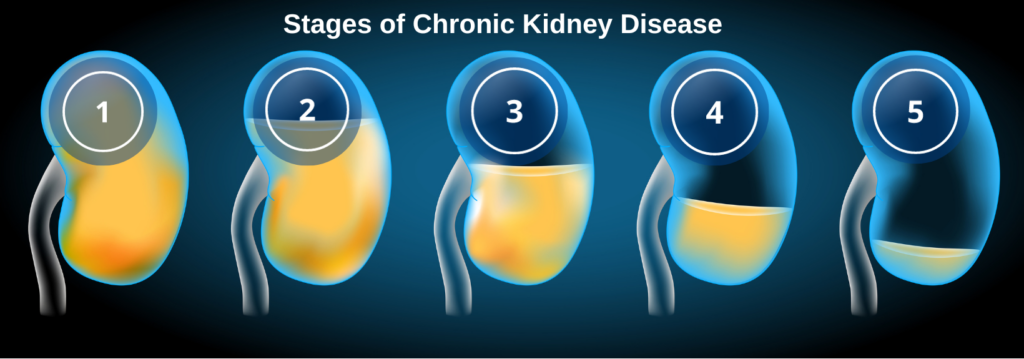Understanding Lab Results Associated with Kidney Disease
How do normal kidneys work, and what is Chronic Kidney Disease or CKD?
Keeping your kidneys healthy is crucial for maintaining overall health. These organs are vital in filtering excess fluids and waste from the blood, which is then excreted as urine. Chronic kidney disease (CKD) can develop over time, typically spanning months to years, and worsens with age. Unfortunately, early CKD often doesn’t exhibit symptoms, making testing essential for diagnosis. It’s important to get tested to determine if you have kidney disease.
What are the tests for CKD?
The diagnosis of CKD usually involves a straightforward urine or blood test. Additional testing options may include an ultrasound, CT scan, Cystatin C blood test, other blood tests, a 24-hour urine test, genetic testing, or a kidney biopsy. However, the primary tests that your doctor will likely order are simple urine and blood tests to measure creatinine and GFR.
Creatinine is a natural byproduct that results from the normal wear and tear of muscles. The kidneys filter out creatinine at a constant rate, meaning most people have a blood creatinine level of 1.0.
However, if your kidneys are not functioning correctly, creatinine will accumulate in your blood, causing the level to increase. It’s important to note that creatinine levels vary among individuals due to age, sex, and race. Therefore, creatinine is not the most reliable marker for CKD. Instead, doctors use creatinine and other factors to calculate your GFR (glomerular filtration rate), which better measures kidney function. A normal GFR is over 90, indicating how well your kidneys are filtering waste products out of your body. The higher the GFR, the better your kidneys are working.
How is CKD classified?
The severity of kidney disease, or stages of CKD, is determined mainly by GFR and ranges from one to five. Your doctor may also factor in the amount of urine protein when determining the severity.

In Stage 1 —GFR is over 90. Kidneys are damaged but usually work.
In Stage 2 — GFR is between 60 and 89. Kidneys are damaged and not working at full strength.
Stage 3 is considered Moderate CKD. GFR is between 30 and 59. At this stage, about half of the kidney function has been lost. Symptoms usually begin now and worsen as kidney function declines.
Stage 4 is categorized as Severe CKD. GFR is between 15 and 29. Monitoring and treatment for the other problems associated with CKD continue.
Stage 5 is considered Kidney Failure. It is also called end-stage kidney disease – ESKD or end-stage renal disease – ESRD; GFR is less than 15.
What determines if my CKD worsens?
Various factors can affect the likelihood of your kidney function worsening. These factors include the stage of your CKD and the protein level in your urine. Those at the highest risk are individuals with advanced stages of CKD, such as stage 4, and those with the highest amount of protein in their urine.
In addition, other factors that can impact your kidney function include the cause of your kidney disease, your history of progression, the medications you are taking (or not taking), and various other factors that can determine whether your kidney function will worsen, stabilize, or even improve.
What can I do?
Even though CKD cannot be cured, there are specific treatments that slow the loss of kidney function and others that manage the symptoms or complications of CKD. Ask your doctor what treatments are right for you.
Resources for Continued Learning
We also offer different services to keep you informed, including CKD Stage 4 workshop education, Basic Group Class, Modality Clinic, Supportive Care Team Consultation, Research Studies, Medical Nutritional/ Dietitian Consult, and various Handouts on multiple subjects.
